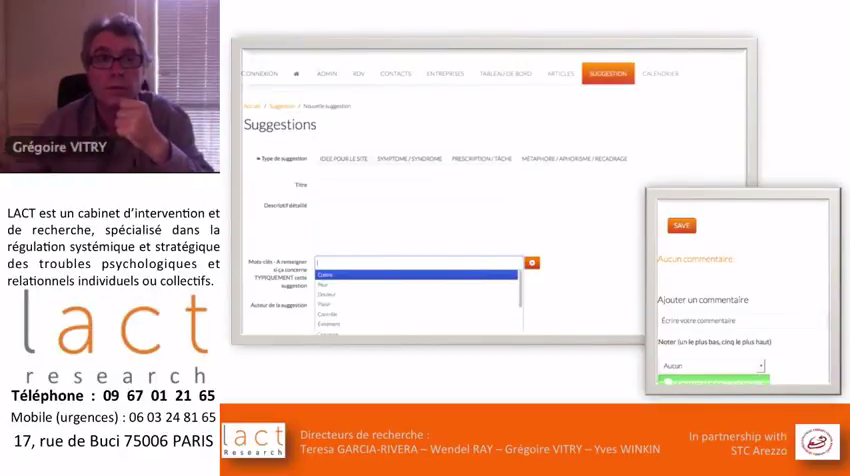 In the Suggestion module, members can rate suggestions submitted by others by rating them from 1 to 5. They can also comment on the suggestions. The evolutions in consequences are collaborative. Even if all the suggestions cannot be made in general but in any case we can have something collaborative to see if it is effective or not this module.
In the Suggestion module, members can rate suggestions submitted by others by rating them from 1 to 5. They can also comment on the suggestions. The evolutions in consequences are collaborative. Even if all the suggestions cannot be made in general but in any case we can have something collaborative to see if it is effective or not this module.
Another important point: there are 2 types of information in the program:
- Qualitative: information is only used to keep the memory of each session, not for research. Areas for entering the situation, the person's problem, the attempted solutions, etc. are made only for members of the program to facilitate their sessions
- Quantitative: The purpose of research is to show the effectiveness of interventions. For example in the solution attempts, the encoded logics, the codification of the solution attempts or the social components are useful information for research.
You have the minimum (mandatory) information below that you must provide in terms of research.
- Type of appointment: this is the base. Is this a first appointment or is it a last? The statistics are made primarily on the last appointments
- The date and time of the appointment
- Situational assessment
- Symptoms/syndromes or perception/reaction system
- Attempts at solutions
- Requirements
The other information is used to accompany you during your sessions (memory, note-taking tool, additional information)
Other novelties suggested by Arezzo:
- Profile of resistance to change
- Family/professional pattern
- Type of authority relationship
- Type of disability
- Type of relationship
- The patient drop-out
- Co-intervention



